Covering Crisis: Refresh and Reboot
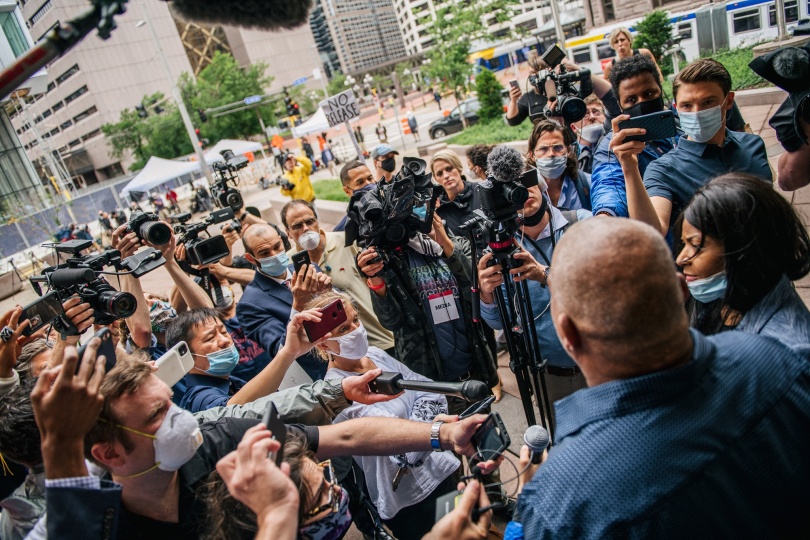
Selwyn Jones, uncle of George Floyd, speaks with reporters in front of the Hennepin County Public Safety Facility on June 29, 2020 in Minneapolis, Minnesota.
Over the last several years, there has been a sharp increase in targeted violence towards journalists as well as persistent gender and race-based harassment, threat, and intimidation in the digital sphere, all with serious implications for journalists’ physical and psychological safety. The rise in authoritarianism worldwide, coupled with the protracted coronavirus pandemic and devastating reality of climate change make safety training for freelance journalists as important as ever.
This virtual five-day ‘Refresher and Reboot’ is exclusively for freelance journalists who have completed the Dart Center and Columbia Journalism School’s annual crisis reporting course.
The training will cover:
Risk assessment and situational awareness with an emphasis on safely covering civil unrest and uprisings, natural disasters, and the Covid-19 pandemic.
Emergency first aid with an emphasis on staunching bleeding and tourniquet tying.
Digital security with an emphasis on securing data and communications with sources, and new risks that have arisen with Covid-19.
Legal matters with an emphasis on legal recourse if arrested or detained, as well as work contracts, risk and liability insurance, and ‘know your rights’.
Trauma awareness and self-care with an emphasis on resiliency-building and science-informed techniques for managing stress and mental health.
The course will build on a core foundation of knowledge and skills through expert briefings, interactive scenario-based exercises, small group discussions and individual coaching.
The course will be offered two times a day to accommodate participants in different timezones: Monday - Friday, October 5-9, 2020.
TrainerS
Risk Assessment
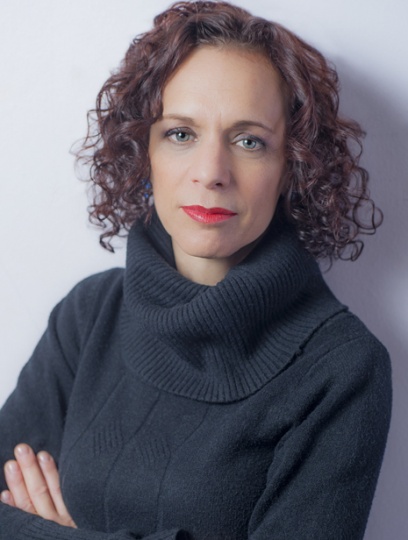
Matloff consults for leading organizations around the world, and has pioneered protocols for digital, gender and physical security. Clients have included NBC, the United Nations, the Society of Professional Journalists, Doc Society, Magnum, the State Department, the Knight Center for Journalism in the Americas, the International Women’s Media Foundation and the American Federation of Television and Radio Artists. Her training company, Security Rules LLC, offers workshops for a wide variety of dangerous situations. Matloff’s latest book, How to Drag a Body and Other Safety Tips You Hope to Never Need, shares expert advice for nearly every conceivable peril. She earlier published No Friends but the Mountains, which drew a link between geography and conflict; Fragments of a Forgotten War, about Angola’s civil war; and Home Girl, which chronicled a Harlem street run by a drug gang. A graduate of Harvard, her work has won the support of the MacArthur Foundation, the Fulbright and Logan Nonfiction programs and Stanford’s Hoover Institution.
Digital Security
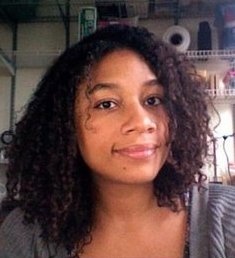
Holmes strives to help individual journalists in various media organizations become confident and effective in securing their communications within their newsrooms, with their sources, and with the public at large. She is a media scholar, software programmer, and activist; and contributes regularly to the open source mobile security collective The Guardian Project.
Emergency First Aid
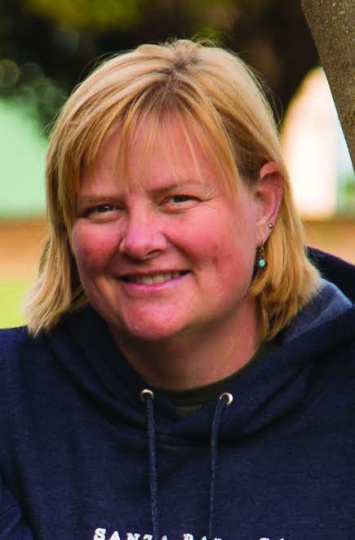
As a member of the Vermont National Guard she has served two tours of duty, first as a Flight Medic in Iraq in 2006 and again in 2010 as a Combat Medic and female engagement team leader in Afghanistan.
Her varied background includes working as an Adjunct Faculty at Johnson State College; combat medical trainer for the Department of State; Deck Watch Officer on the USCGC Tahoma; a “house mouse” in Antarctica; a wildland fire fighter; women’s crew coach; medical support for the Mountain Warfare School in Jerico, VT; and Operations Manager for Cookson America. Recently, she's been working for UN forces and within the US military on increasing awareness of gender diversity.
Legal Defense
Saba Ashraf qualified as a sollicitor in 2013 and joined Media Defence in 2018. She previously practised in the areas of criminal defence, extradition and civil litigation. Prior to that, Saba worked on cases involving international human rights law and public law as well as litigating and advocating on various criminal defence and extradition cases before courts in the UK. She has interned at Reprieve, assisting in their death penalty work in the MENA region. Saba holds a BSc and LLB and is fluent in Urdu and conversational in Arabic.

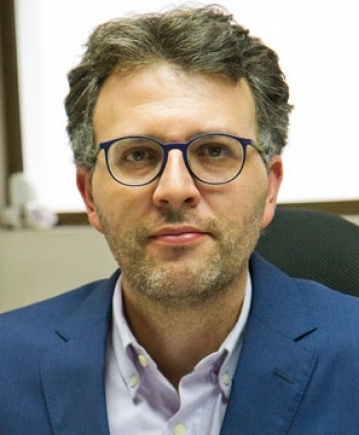

Emotional Self-Care
With generous support from the James W. Foley Legacy Foundation, the Rory Peck Trust, and the ACOS Alliance, the Dart Center will be offering this reporting course to freelance journalists at no cost.
